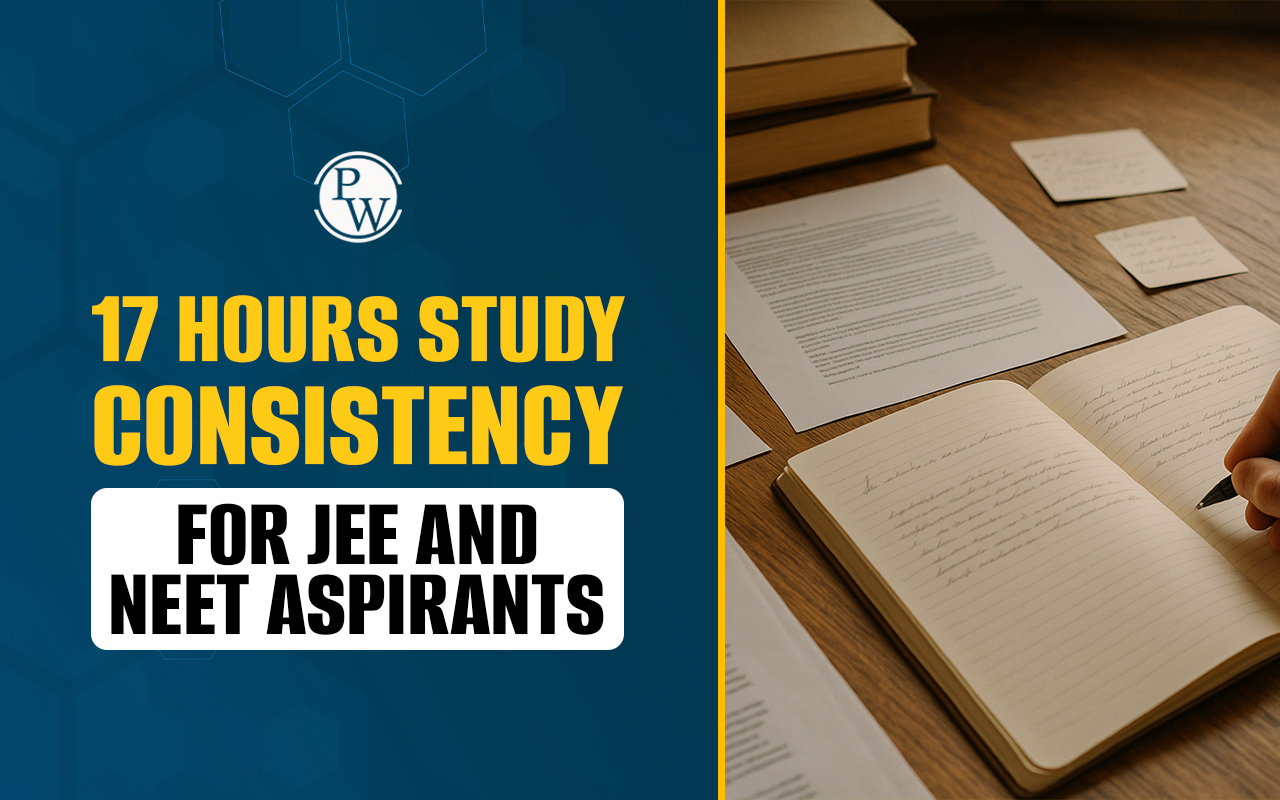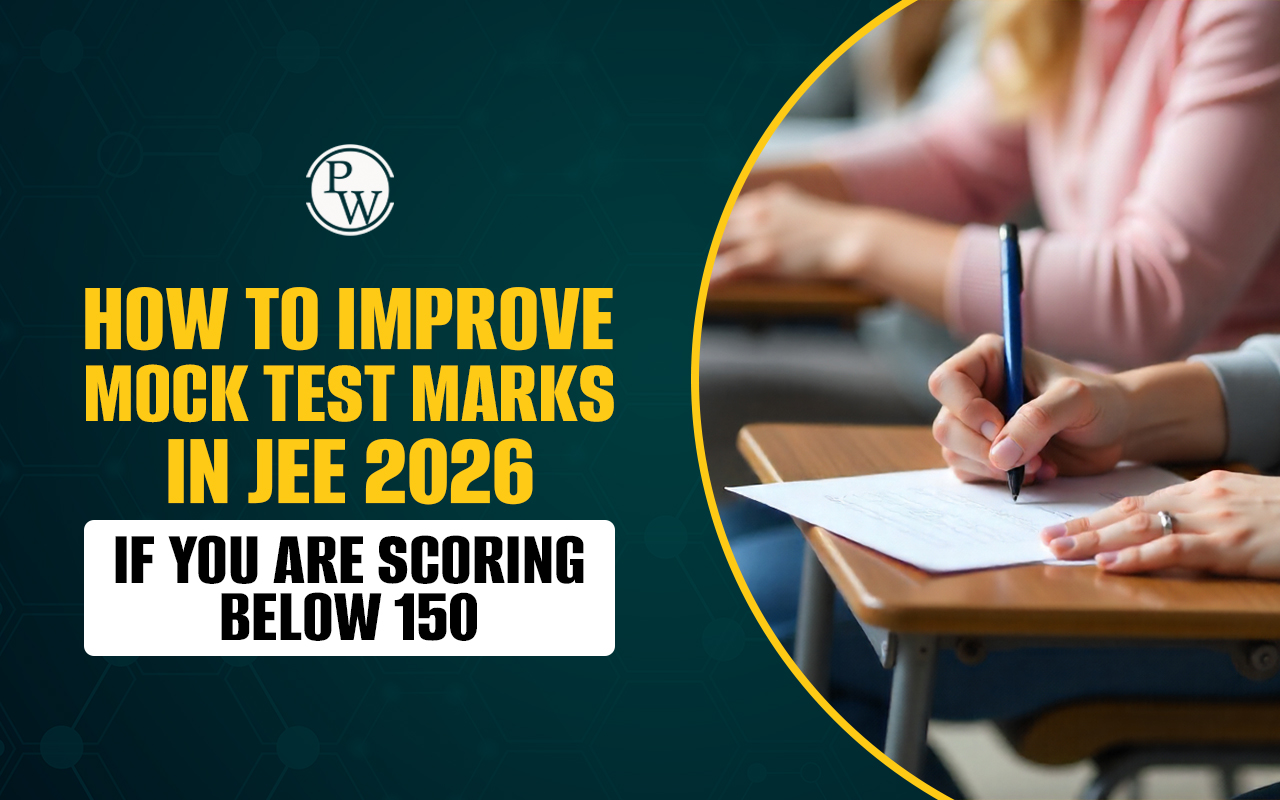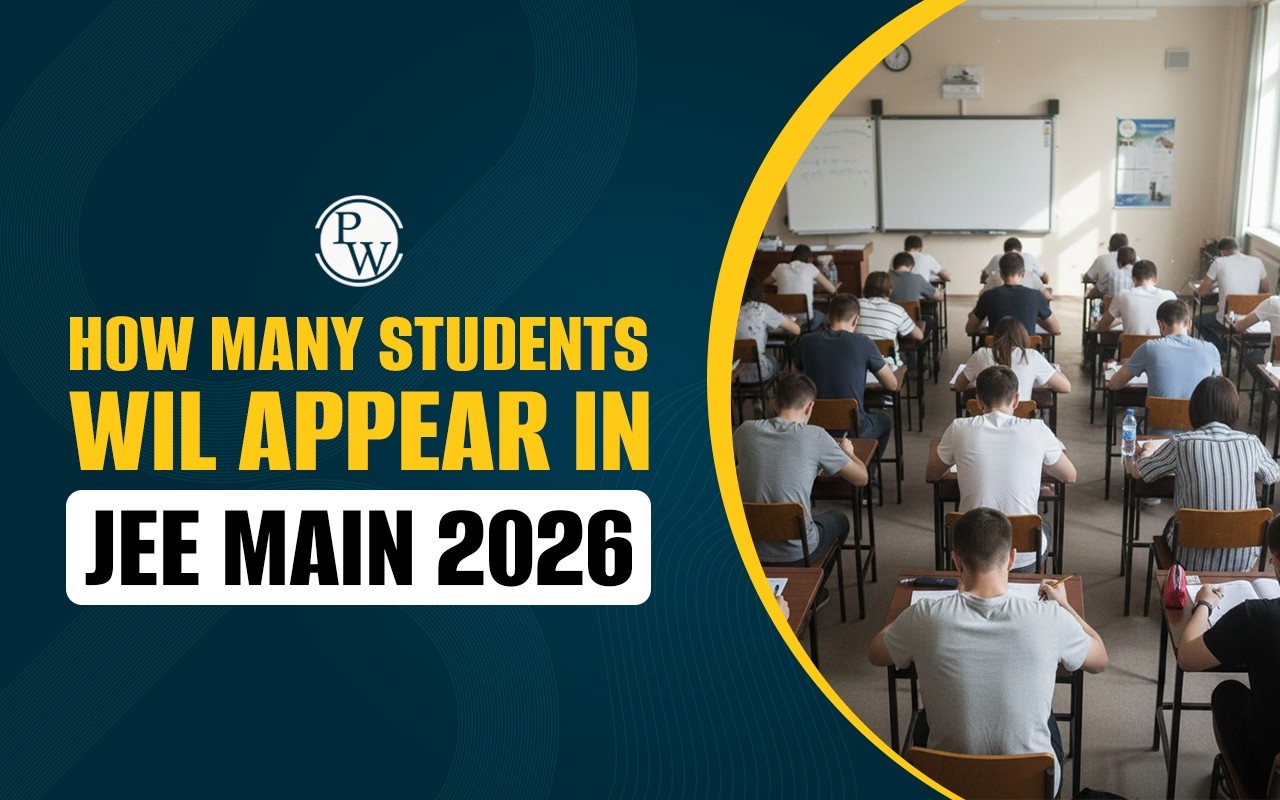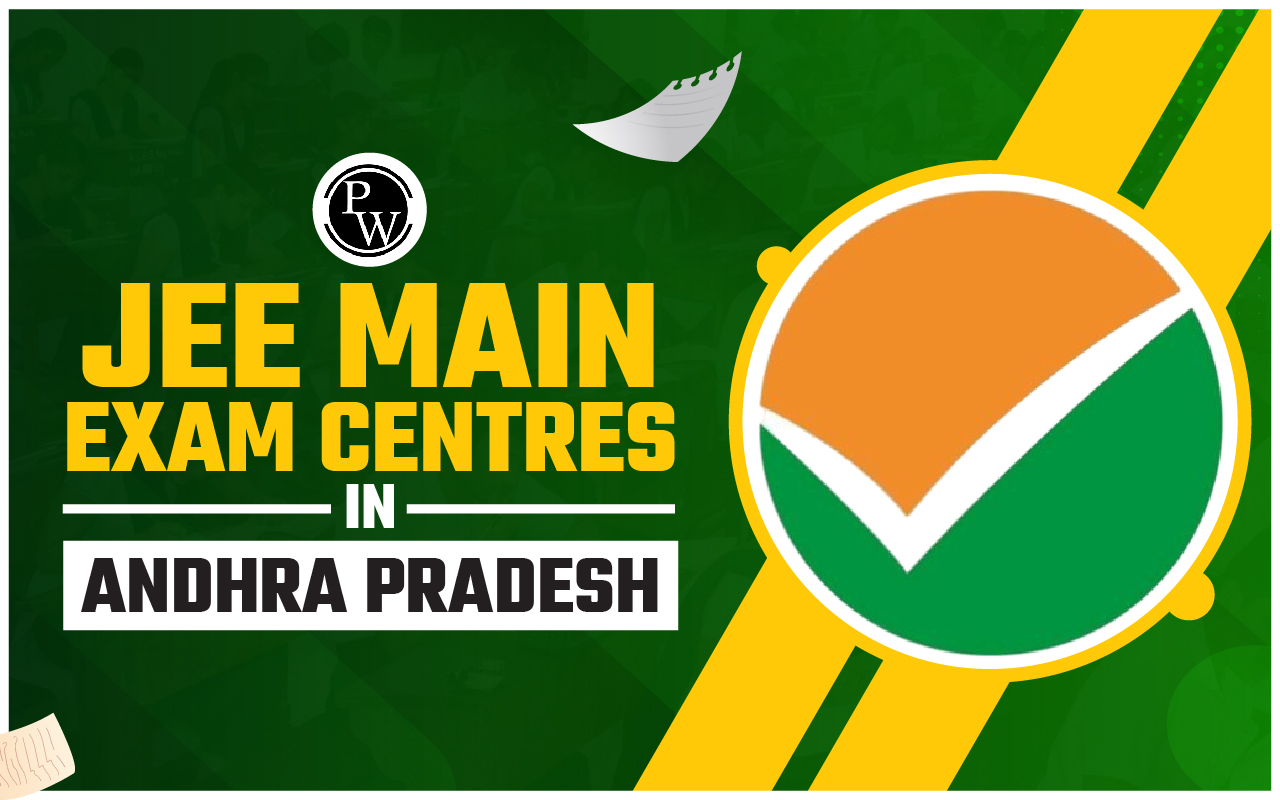
JEE Vs NEET : In India, the Joint Entrance Examination (JEE) and the National Eligibility cum Entrance Test (NEET) are two of the most prominent national-level competitive exams. Students aiming for careers in engineering or medicine begin preparing early, as both these exams are known for their difficulty and intense competition. JEE is the gateway to prestigious engineering institutions like IITs, NITs, and IIITs, offering courses in B.Tech, B.E., and related fields. On the other hand, NEET is the qualifying exam for students aiming to enroll in MBBS, BDS, and various medical courses offered by reputed colleges across the country.
One of the most common questions among aspirants is: Which is tougher, JEE or NEET? While both exams are highly challenging, they differ in terms of syllabus, exam pattern, difficulty level, and the type of preparation required. This article will help you explore the key differences between JEE and NEET to make an informed decision about your career path.
What is JEE?
JEE, or Joint Entrance Examination, is a highly competitive entrance exam in India for students seeking admission to undergraduate engineering programs at various institutions, including the prestigious Indian Institutes of Technology (IITs) and National Institutes of Technology (NITs). The JEE is divided into two main parts:-
JEE Main : This is the first stage of the examination and is conducted multiple times a year. It tests candidates on subjects like Physics, Chemistry, and Mathematics.
-
JEE Advanced : Only students who qualify for JEE Main can attempt this second stage. It is more challenging and is specifically for admission to IITs.
What is NEET?
NEET, or National Eligibility cum Entrance Test, is an exam in India for students who want to study medicine. It is the only entrance test for courses like MBBS and BDS, replacing various state-level exams. NEET tests students in Physics, Chemistry, and Biology. To take NEET, students must finish their 10+2 education with the right subjects and meet specific age requirements. The exam is usually a pen-and-paper test with multiple-choice questions. NEET scores are important for getting into government and private medical colleges, making it a key step for future medical professionals.IIT JEE Exam Overview
Joint Entrance Examination is conducted by the National Testing Agency (NTA) to get admission to the top undergraduate centrally funded institutions like IIT, NIITs and other centrally funded hospitals. The JEE Exam is conducted in two important stages.The first stage is JEE Main. Candidates need to clear it with a good percentile. Next, the candidates outperforming other participants with a good rank in JEE Main Result are eligible for the JEE Advanced Exam. The JEE Advanced exam helps candidates get admission to several IITs and NITs. At present there are 23 IITs, 25 IIITs, 31 NIITs, and 19 GFTIs.
| IIT JEE Exam 2026 Overview | |
| Particulars | Details |
| Name of the Examination | Joint Entrance Examination Main (JEE Main) |
| Conducting Body | National Testing Agency (NTA) |
| Level of examination | Undergraduate Exam at the National Level |
| Exam Frequency | Twice a year (January and April) |
| Exam Mode | Computed Based Test (CBT) for admissions to BE/ BTech/ BArch/ BPlan Pen and paper-based test (PBT) for Drawing section in BArch |
| Courses offered via entrance exam | BE/BTech, BArch, BPlan |
| Mode of Application | Online |
| Exam duration |
3 hours for BTech/ BArch/ BPlan 3.5 hours for BArch and B.Planning both 4 hours for PwD candidates |
| Papers and Total Marks |
Paper-1: BE/BTech (300 marks) Paper-2A: BArch (400 marks) Paper-2B: BPlan (400 marks) |
| Total Questions |
BE/BTech: 90 BArch: 82 BPlan: 105 |
| Marking Scheme |
+4 for each correct response -1 for each incorrect response No marks for unattempted questions |
| Language/Medium of Exam | English, Hindi, Assamese, Bengali, Gujarati, Kannada, Marathi, Malayalam, Odia, Punjabi, Tamil, Telugu and Urdu |
| Colleges Accepting Exam Score | All NIT, IIITs, and CFTIs |
| Official Website | jeemain.nta.nic.in |
The exam is conducted in January (first session) and April (the second). Candidates can appear for either of the two sessions or both. Candidates must have cleared their 12th score. Candidates can check the jee main eligibility criteria and syllabus.
NEET Exam Overview
NEET Exam stands for National Eligibility Entrance Test (NEET). It was known as the All India Pre-Medical Test (AIPMT). It is a national-level entrance examination for admission to various top medical colleges in India. The top medical courses in India are MBBS, BDS, BAMS, BUMS, BHMS, etc. Candidates can get admission to the government or private medical and dental colleges in India. This year, NEET is to be conducted in May. Candidates must have Biology, Chemistry and Physics as their main domain subjects. The exam is conducted every year in top MBBS and BDS colleges. The examination is conducted for three hours, and the three main subjects are Biology, Chemistry and Physics. Candidates must check the NEET Exam dates and NEET Eligibilty Criteria .
| NEET Exam Overview | |
| Name of Exam | NEET |
| Full-Form | National Eligibility Entrance Test |
| Exam Organizing Body | National Testing Agency (NTA) |
| Level of Exam | National |
| Type of Exam | Medical entrance exam |
| Courses in which admission is through NEET | MBBS, BDS, BAMS, BSMS, BUMS, and BHMS, Nursing |
| Colleges in which admission is through NEET | All Medical Colleges in India |
| Mode of Exam | Offline |
What Is Difference Between JEE And NEET?
JEE Vs NEET : JEE and NEET exams are entrance-level examinations conducted for different domains. Check the table below to know some major differences between JEE vs NEET.
| JEE Vs NEET : Difference Between JEE And NEET | |
| JEE | NEET |
| JEE stands for Joint Entrance Examination. | NEET stands for National Eligibility Entrance Test. |
| JEE is a computer-based test | NEET is a pen-paper-based test. |
| There are two sessions in January and April. | NEET is conducted in May. |
| JEE Contains Physics, Maths and Chemistry as the major subjects. | NEET contains Biology, Chemistry and Physics as the main subject. |
| Entrance to top IIT, NIT, IIIT, and GFTIs engineering colleges. | Entrance to top medical and dental colleges in India. |
| JEE exam is conducted in 13 major languages: English, Assamese, Bengali, Urdu, Hindi, Kannada, and Malayalam. Odiya. Punjabi, Tamil and Telugu. | NEET exam is also conducted in 13 major languages: English, Assamese, Bengali, Urdu, Hindi, Kannada, and Malayalam. Odiya. Punjabi, Tamil and Telugu. |
| For JEE Candidates must have a 75% percentage in the 12th exam or 65% for reserved category candidates. | NEET Candidates must have 50% percentage in the 12th exam or 45% for reserved category candidates. |
| There are 90 questions in total. | There are 180 questions and 45 are from Physics, Biology 90, and Chemistry 45. |
| Candidates are allotted a time duration of 3 hours. | The time duration allotted is 3 hours. |
| Candidates will get a +4 mark for each correct answer and a -1 mark for each incorrect answer. No marks for unattempted questions. No negative markings in the case of wrong answers for Non-MCQ questions. | +4 Marks for each correct answer and -1 mark for each incorrect answer. |
| Score Range: -75 and 300 | Score Range: -180 and 720 |
| Candidates can give JEE Main for three consecutive years. | Candidates must be at least 17 years old. If more than 25 years, then needed Supreme Court order to appear. |
| Candidates can visit the official website @ jeemain.nta.ac.in | Candidates can visit the official website @ neet.nta.ac.in |
JEE Vs NEET: Which Is More Difficult To Crack?
Joint Entrance Exam and NEET exam are both the most difficult competitive entrance examination. Every year, million of candidates appear for these two exams to get admission to engineering and medical colleges in India. However, compared to JEE, NEET offers fewer seats for different courses in India. Hence, candidates need to work harder to clear their NEET exam. The difference is, however, very slight, and both exams are equally difficult. The JEE Main Exam is the least difficult, then comes the NEET exam, and the most difficult exam is the JEE Advanced Exam based on various formats.
Comparison Of Eligibility Criteria For JEE and NEET
Candidates can check the eligibility criteria for both JEE and NEET in the table given below.
JEE Eligibility Criteria
Candidates can check the eligibility criteria for JEE exam in the table below. To apply for JEE exam, candidates need to pass the class 12 board exam with a minimum percentage of marks. There are no specific age criteria for JEE exam. The other eligibility criteria to appear for JEE exam is mentioned below.
| JEE Vs NEET: Comparison Of Eligibility Criteria For JEE and NEET | |
| Criteria | Details |
| JEE Main Eligibility Criteria (Age) | No specific age limit for appearing in JEE Main exists. However, candidates must have passed their Class 12th examination or equivalent in the previous or current year. |
| JEE Main Eligibility Qualification | Candidates should be passed the 10+2 exam or an equivalent examination from a reputable board, such as the CBSE, ICSE, or any state or central board. |
| JEE Main Eligibility: Percentage | General category candidates must secure a minimum of 75% aggregate marks in their qualifying examination. For SC/ST candidates, the minimum aggregate requirement is 65%. |
| JEE Main Eligibility: Year of Appearance | Candidates who have appeared for their Class 12th or equivalent examination in the year 2022 or 2023 are eligible for JEE Main. |
| JEE Main Eligibility: Attempts | Candidates are allowed to attempt JEE Main for a maximum of three consecutive years. However, for admission to IITs, the number of attempts is limited to two in consecutive years. |
| JEE Main Eligibility : Admissions to IITs, NITs, IIITs, and CFTIs | To get admission to the Indian Institutes of Technology (IITs), National Institutes of Technology (NITs), Indian Institutes of Information Technology (IIITs), and Centrally Funded Technical Institutions (CFTIs), candidates must qualify for JEE Main and also meet the eligibility criteria for JEE Advanced, the next stage of the engineering entrance examination. |
| JEE Main Eligibility : Nationality | The applicant must be an Indian citizen. Other foreign nationals, NRIs, OCIs, PIOs, and so on, can also apply. |
| JEE Main Eligibility : Subjects | The qualifying examination should include Physics, Chemistry, and Mathematics as compulsory subjects. |
NEET Exam Eligibility Criteria
Candidates can check NEET exam eligibility criteria in the table below. To apply for NEET exam, candidates need to pass the class 12 board exam with a minimum of 50% marks. There are no age restrictions to appear in NEET exam.
| NEET Exam Eligibility Criteria | |
| Criteria | Eligibility |
| Domicile | Citizens of India can apply for NEET |
| If the candidate does not stay in India, he or she must be an Overseas Citizen of India (OCI) to be eligible to apply for NEET | |
| Minimum Age Criteria | 17 years |
| Maximum Age Limit | NMC has removed the upper age limit |
| Minimum Qualification | The candidate must have cleared class 12th with at least 50% aggregate marks, PWD-45%, and SC/ST-40% |
| Maximum Number of Attempts | There is no restriction on the number of attempts within the prescribed age limit. |
| Aadhar Card is Not Compulsory | According to the order of Supereme Court, a candidate is not required to have an Aadhar Card to apply for NEET. Therefore, non-residents of India are also eligible to apply for the exam. |
JEE Vs NEET : FAQs
What is the full form of JEE?
What is the full form of NEET?
What is the major difference between JEE and NEET exams?
How many times is NEET conducted in a year?
How many times is JEE Main conducted in a year?
Which exam is more difficult, JEE or NEET?










